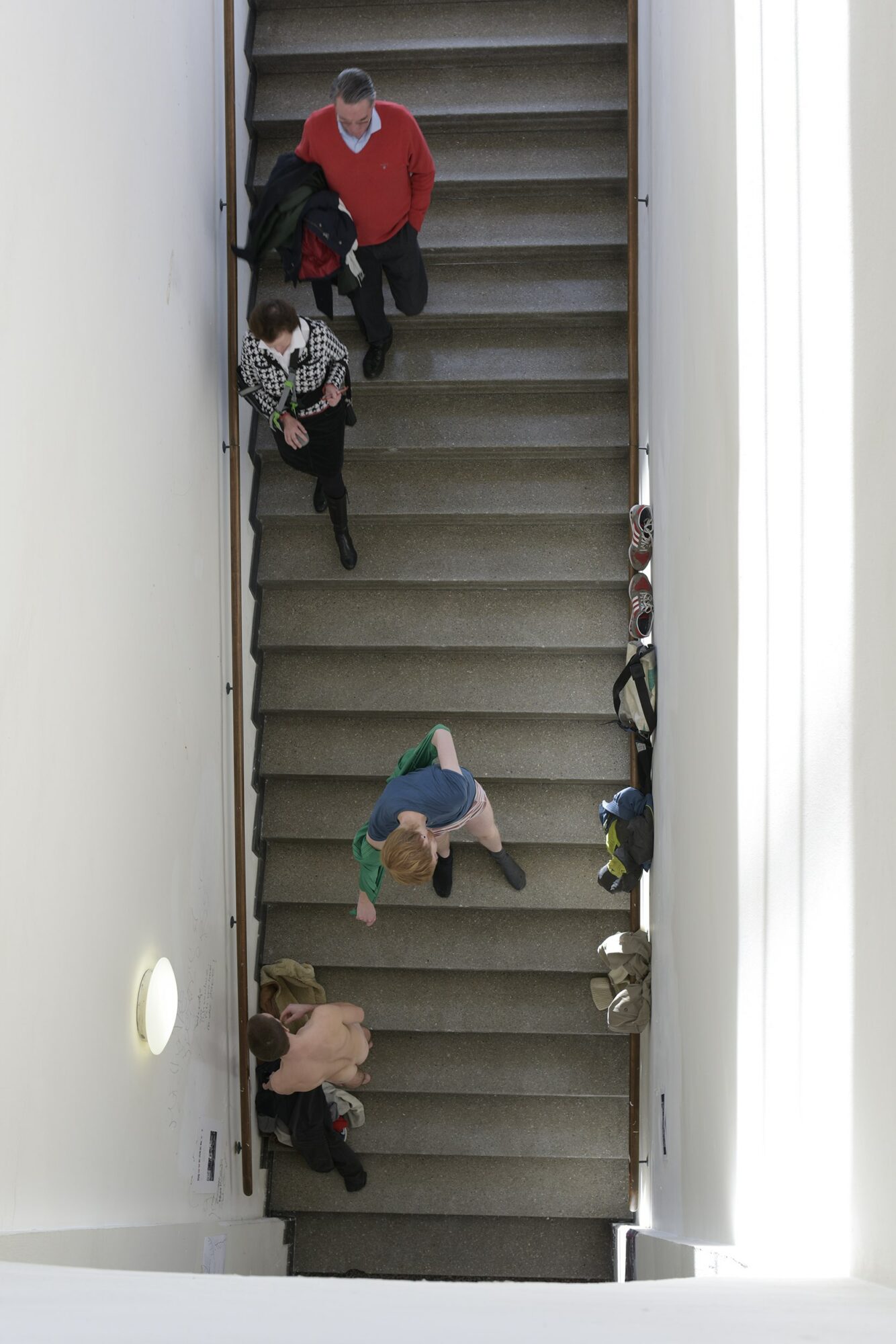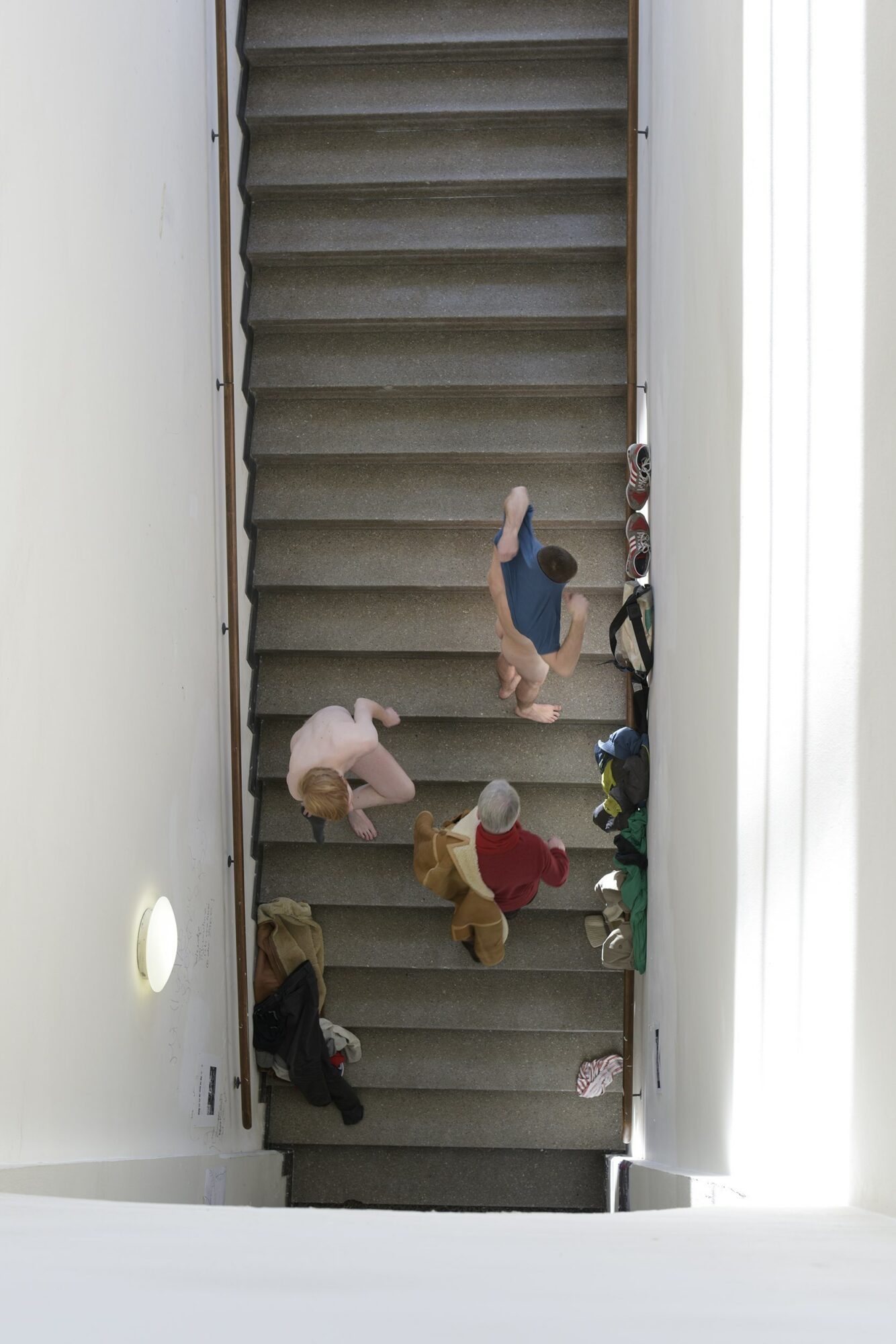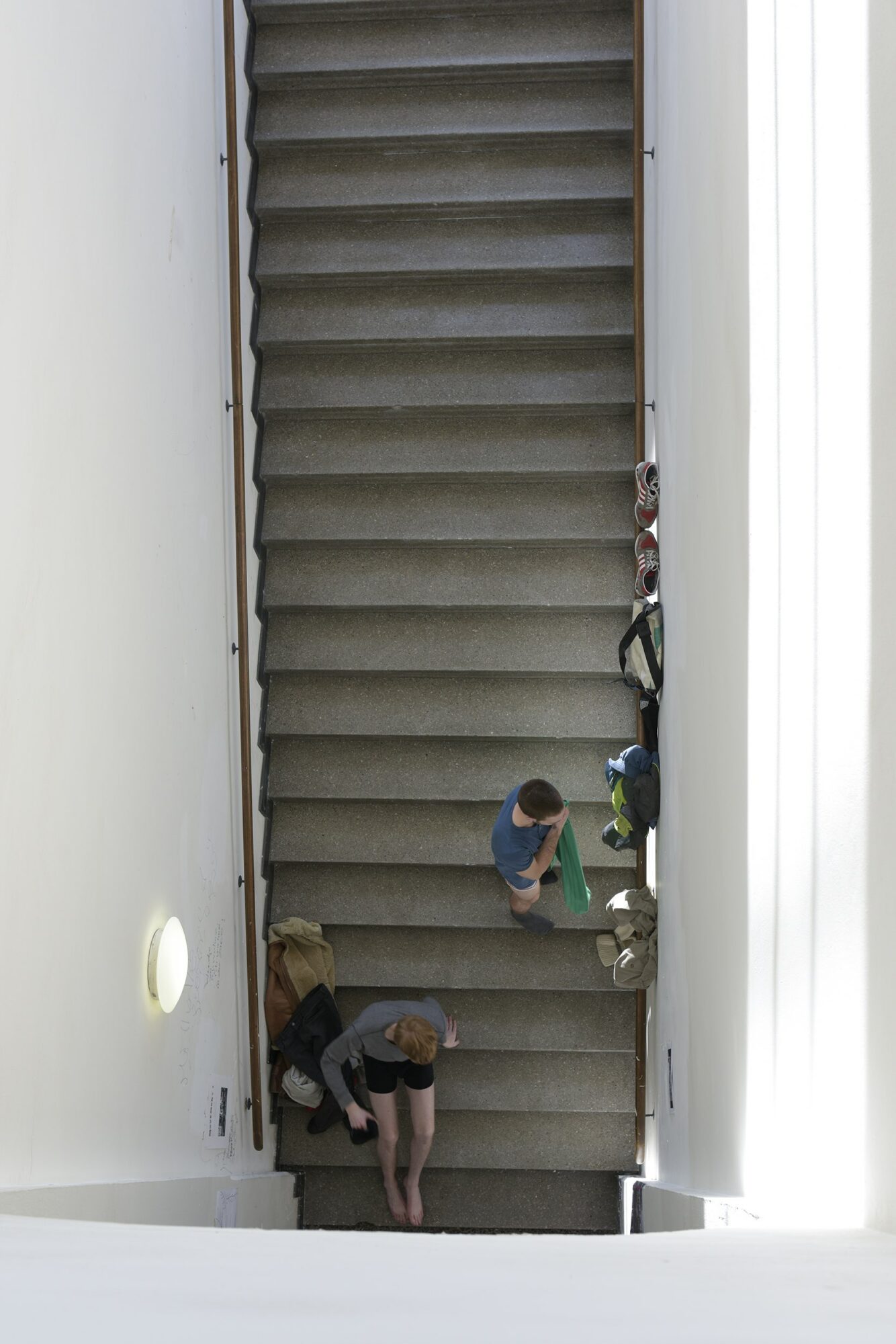Kleidertausch, Kunstakademie Düsseldorf
7 days live performance in collaboration with Marco Biermann, unannounced, Rundgang Kunstakademie, Düsseldorf, 2015
read more ⟶
Two performers are constantly exchanging their clothes back and forth in the public space of the Kunstakademie Düsseldorf, thus making visible an artistic form that is simultaneously in the process of disappearing into apparent everyday life and normality.
Tomas Kleiner’s and Marco Biermann’s performance Kleidertausch (Dress Exchange) begins without much fuss: barely noticeable to visitors to the exhibition rooms at the Düsseldorf Art Academy, the two artists take up positions in the space. The spatial distance between the two encloses the audience on the one hand and allows the viewer due freedom of movement on the other, but cannot hide the fact that both refer to each other in their actions. In the performance, which now begins, both artists remove their clothes in calm, introverted movements, only to exchange them in the midst of the crowd. With the gesture of completely undressing themselves, the brief moment of nudity and the subsequent putting on of the other’s clothes, they create a place in the middle of the public space that seems familiar, friendly and symbolically charged at the same time.
Getting undressed, being naked for a short time, are everyday occurrences, yet at this point in the performance, and since both artists are naked, there is maximum attention to their actions: while a part of the audience is inclined to indulge in voyeurism, others present practice active ignorance. The performance performed by the two actors, familiar to us all, collides here with the equally intimate act of exposure, precisely because it takes place in public space. Thus a dichotomy is created between a situation that is familiar to all of us, which takes place in private space, at best in the protected atmosphere of a changing room, and which under normal circumstances has a specific purpose, and the apparently purposeless undertaking of the two artists. Their nakedness – that is, the nakedness of the other person who is not ourselves – comes from an area normally not accessible to the public and thus seems neither justifiable nor quite so in relation to public space.
Here another inconsistency between art in public space is revealed, which – precisely because it is familiar to us – often goes unnoticed. Static or conventional art in public space is taken for granted.
What is remarkable about this – according to Robert Musil – is how little this art is noticed. It only attracts attention when you have to avoid it. One is also inclined to avoid changing clothes. However, not because what is started imperceptibly at first ends imperceptibly, but because the constellation brought about by Tomas Kleiner and Marco Biermann, in its combination of inconspicuousness and simultaneous conspicuousness, binds our attention to itself. In every respect, the performance of the exchange of clothes breaks through and expands our (self-) perception and consciousness habits.
Text excerpt from Dr. Barbara Oettl
Rolltreppe / public escalator, public space, Düsseldorf
several days of live action in collaboration with Marco Biermann, video performance, Königsalle Düsseldorf, 2015
read more ⟶
Two performers run against the direction of a public escalator (dt. “Rolltreppe”). The play with the video’s cropping in combination with the movement of the escalator thus simultaneously shows the ephemeral and immediate reactions of the passers-by.
Participation in the video festival “Video-Walk” of the Weltkunstzimmer, Düsseldorf, 2015



















